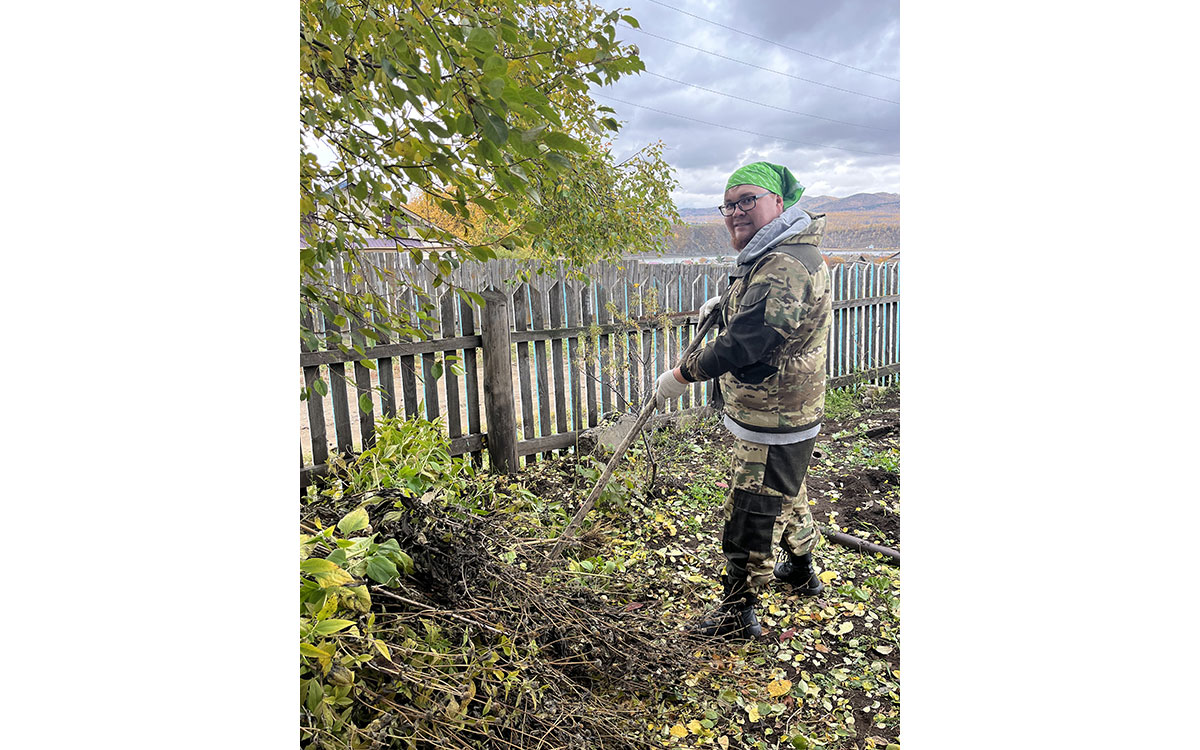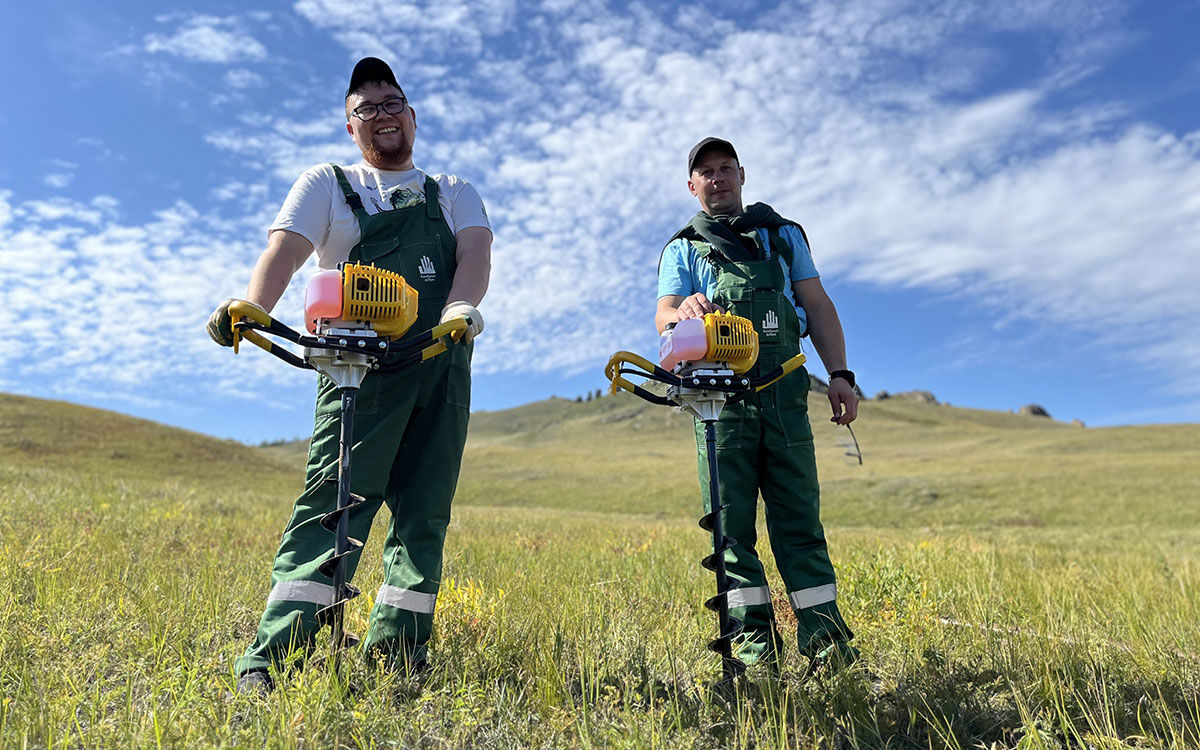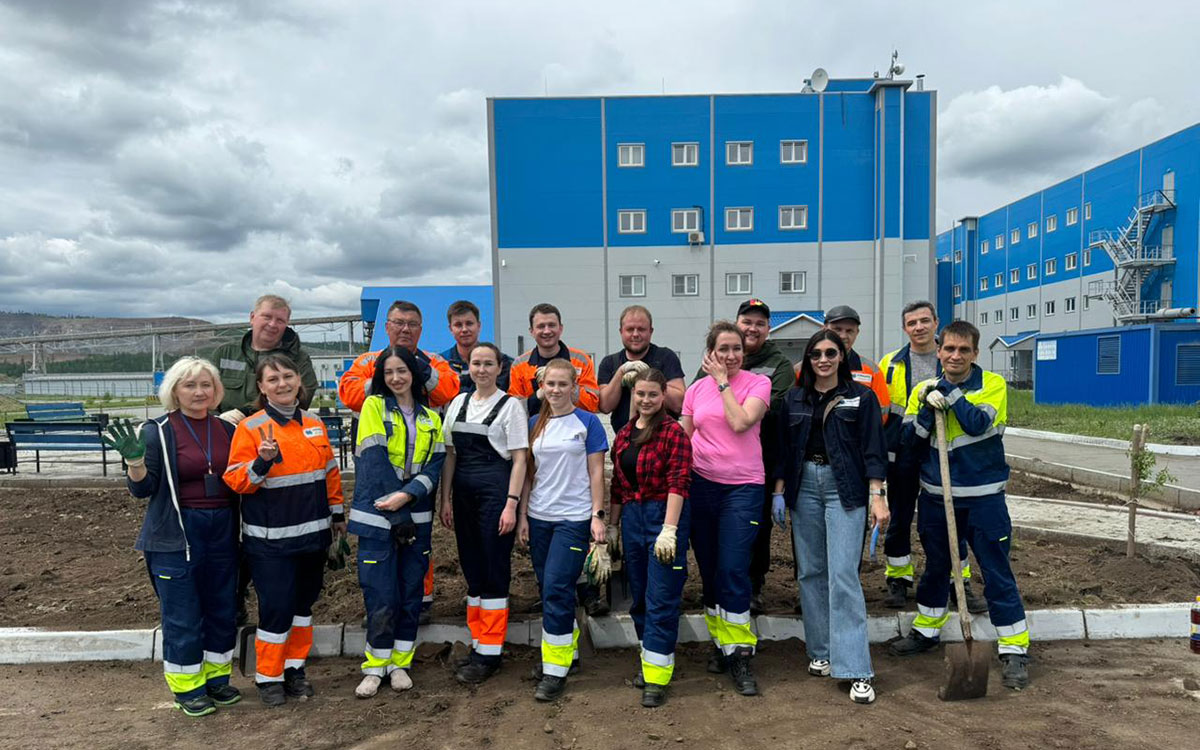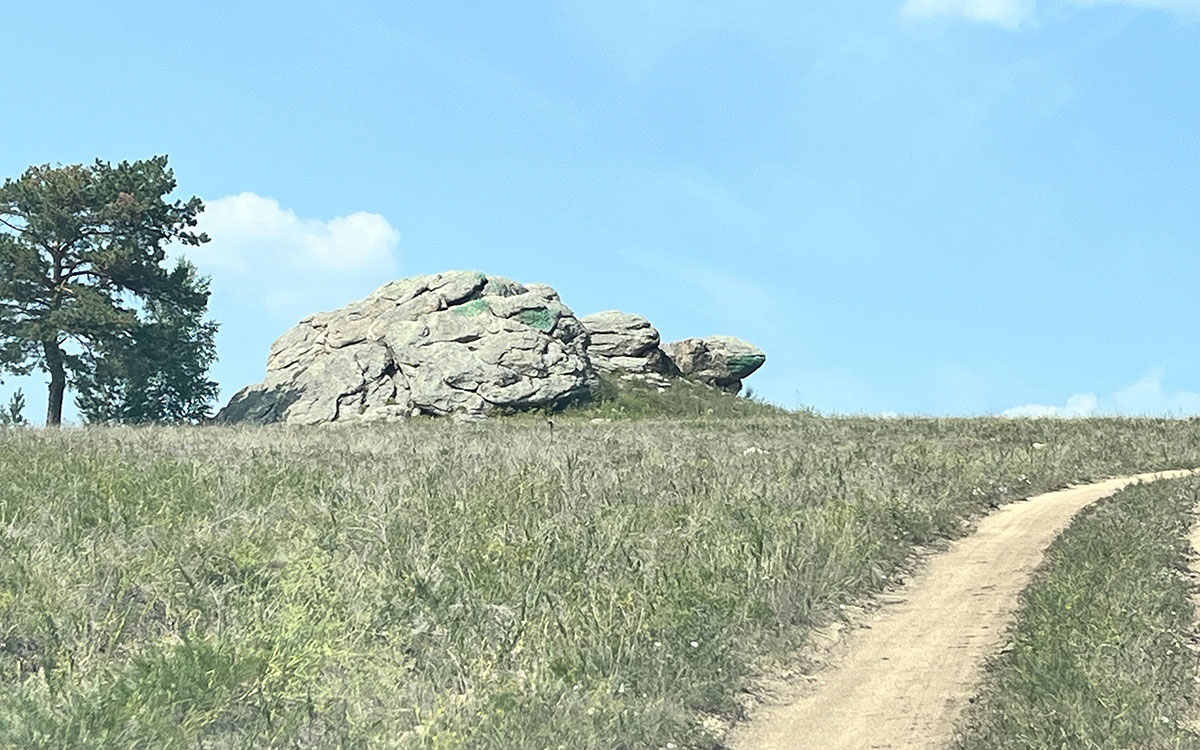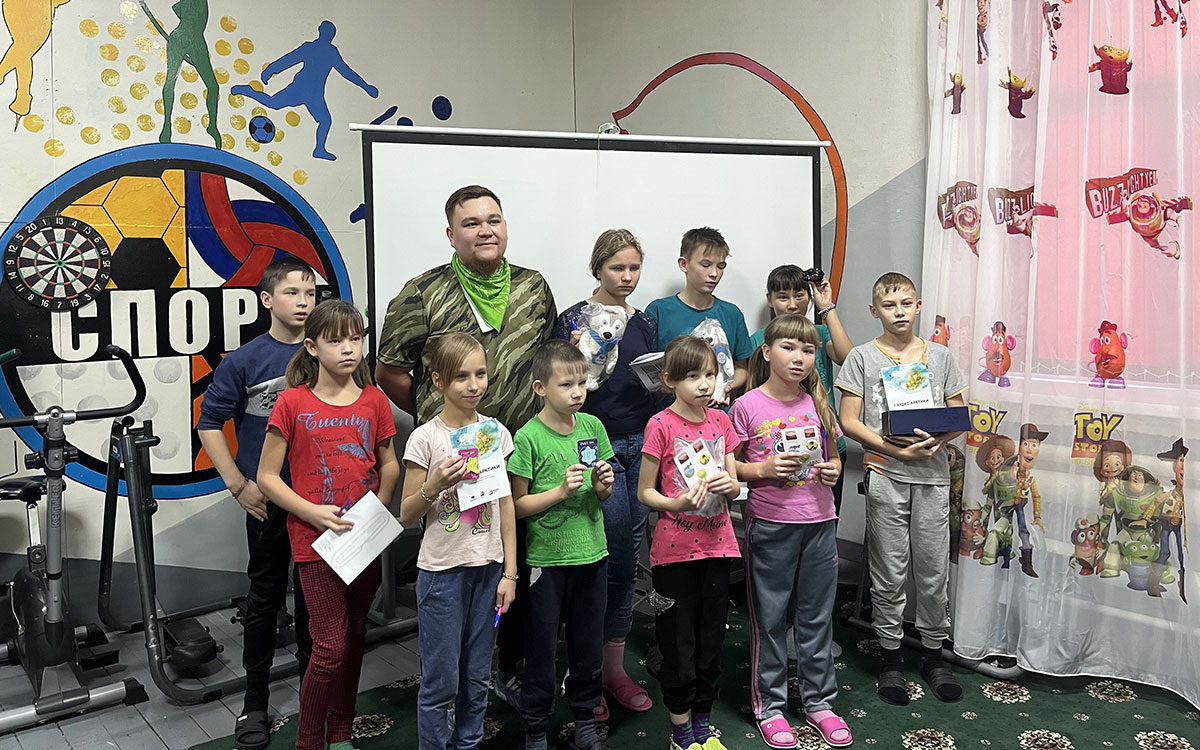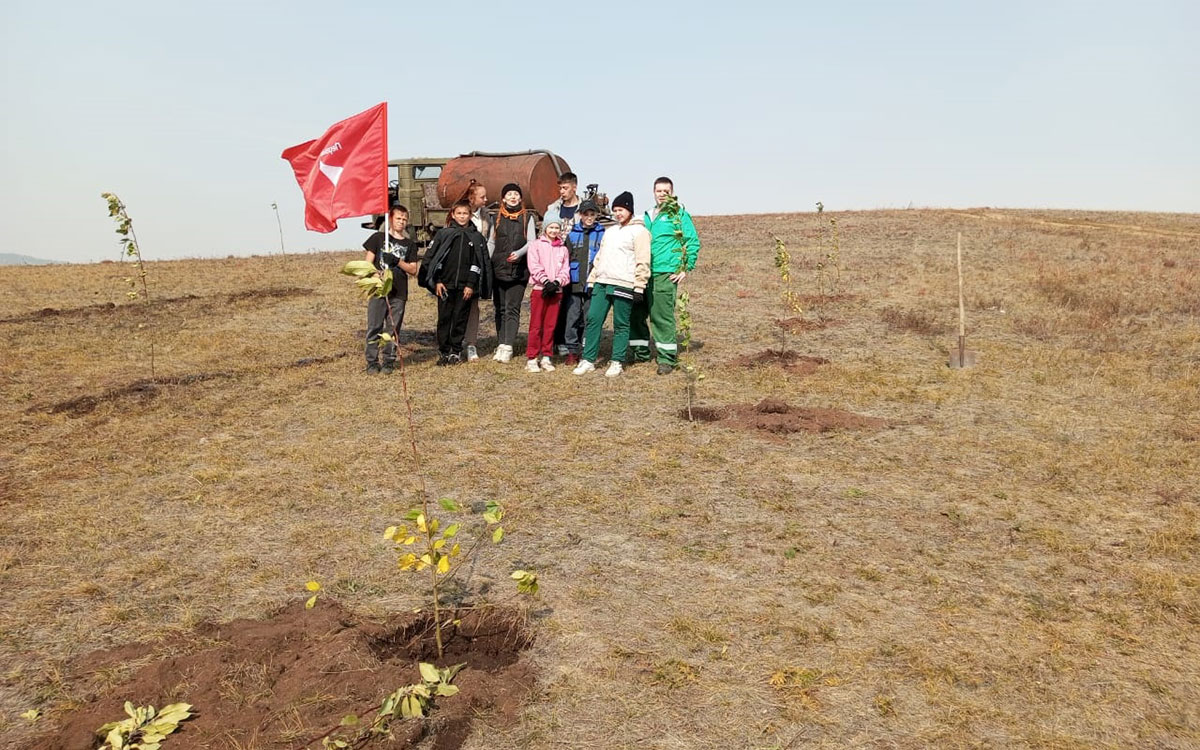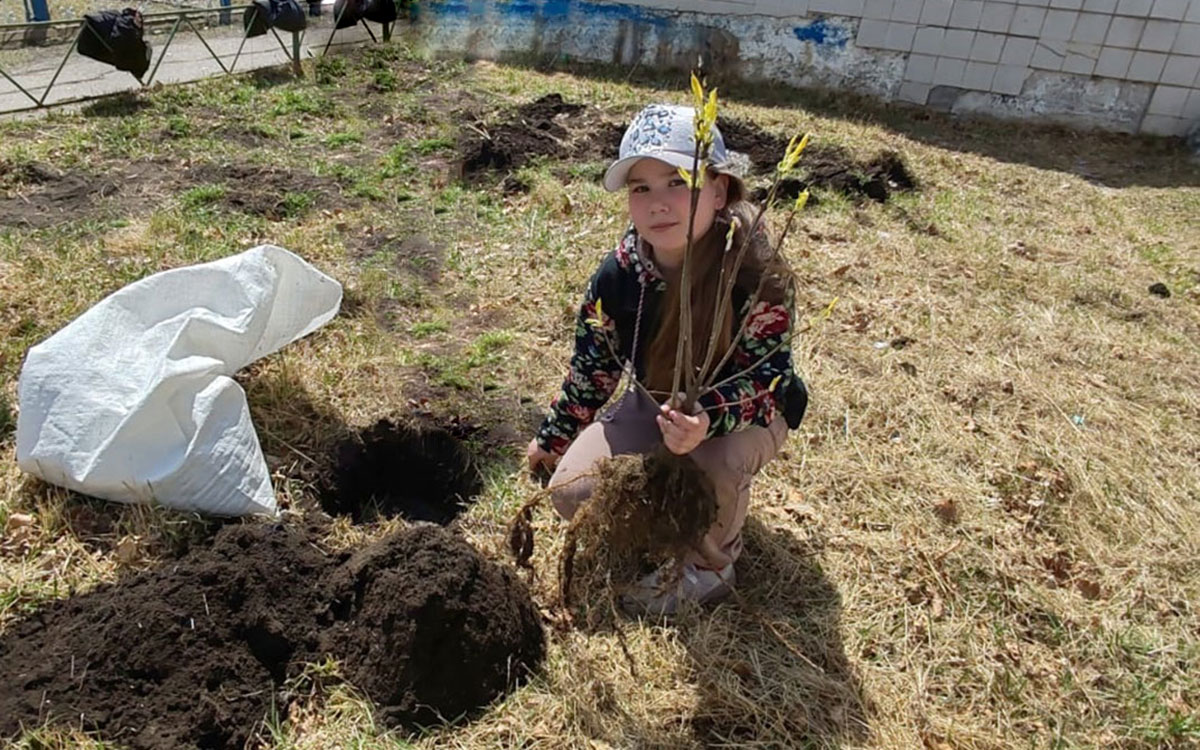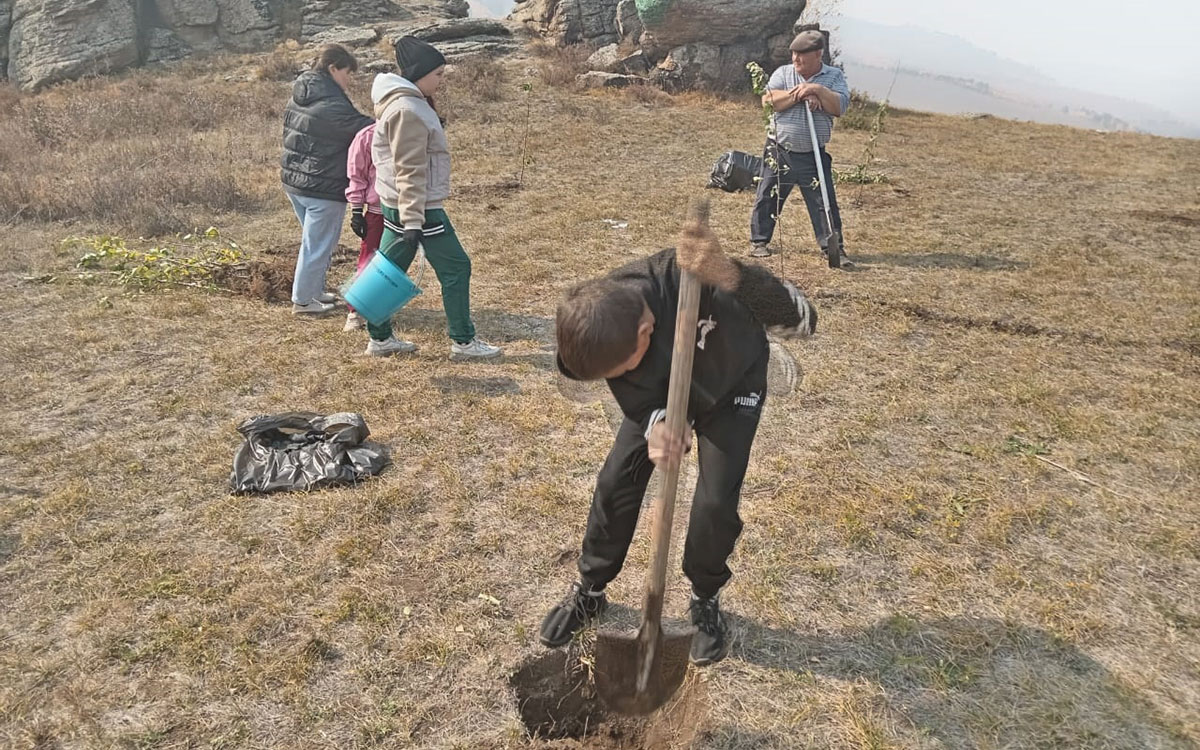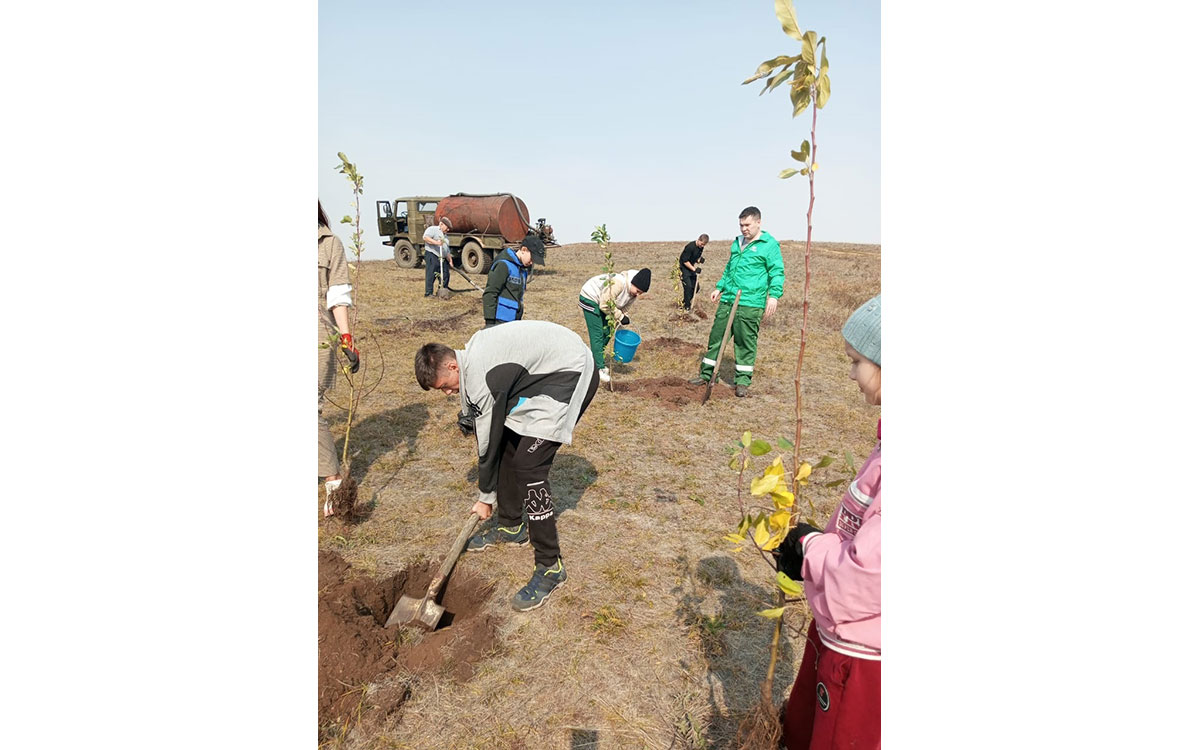Love for nature meets desire to help
An employee of GRK Bystrinskoye for over seven years, Aleksander Golubev has also become an inspirational leader of the Heat Keepers corporate volunteer team.
Aleksander has been helping people and taking care of the environment in his hometown of Sretensk since he was little. His grandfather owned a farm, and his father always took him forest hiking. Now Aleksander is nurturing love for nature in his son and does volunteer work.
– How did you first begin volunteering?
– We teamed up in 2020 when Nornickel started the Poneslos eco-marathon. We called our team ‘The Last Pangaea’ and got to take part in several events. But organized volunteering turned out an uneasy task. All our team members lived in different cities, and getting together even in the capital of the Trans-Baikal Territory was hard. So the team was dissolved. The name apparently has played a role, and we broke apart like Pangaea.
In 2022, Mikhail Kalutsky joined the company. He immediately became interested in corporate volunteering and suggested assembling a new team. I had doubts but Mikhail said: “We can do it!” Since then, for the fourth year now, we have been committed to volunteering and named our team The Heat Keepers. Our goal is to make people feel warm and keep this feeling in the hearts of others. Besides, we are energy workers. So heat and warm water supply is our profession.
Our team consists of 5-6 permanent members. Each person has their own area of responsibility. For example, Evgeny Egorov is responsible for logistics, Vitaly Domashonkin is tasked with creative processes, I come up with ideas, and captain Mikhail Kalutsky has an organizational role.
In 2022, Mikhail Kalutsky joined the company. He immediately became interested in corporate volunteering and suggested assembling a new team. I had doubts but Mikhail said: “We can do it!” Since then, for the fourth year now, we have been committed to volunteering and named our team The Heat Keepers. Our goal is to make people feel warm and keep this feeling in the hearts of others. Besides, we are energy workers. So heat and warm water supply is our profession.
Our team consists of 5-6 permanent members. Each person has their own area of responsibility. For example, Evgeny Egorov is responsible for logistics, Vitaly Domashonkin is tasked with creative processes, I come up with ideas, and captain Mikhail Kalutsky has an organizational role.
The legend of beautiful Shilka
– What projects are you involved in?
– At first, we only planned to do environmental projects, as our passion is to preserve nature in its pristine state for future generations. But then Vitaly suggested that we work with children. So now we target two areas.
– Have you completed any projects?
– One of the most important environmental problems in the Trans-Baikal Territory is the extinction of plants and animals. To promote environmental awareness among children, in 2022 our team built an environmental corner near the entrance to the Sretensk city library.
I was in charge of the design, we ordered and put up the plexiglass signs showing rare and endangered species of animals and plants in the Trans-Baikal Territory with brief descriptions. We also hung a pretty bird feeder there. The library is mainly attended by kids. When they find out that some animals and plants may disappear, they begin to think that nature is fragile. This encourages them to care for our environment.
I was in charge of the design, we ordered and put up the plexiglass signs showing rare and endangered species of animals and plants in the Trans-Baikal Territory with brief descriptions. We also hung a pretty bird feeder there. The library is mainly attended by kids. When they find out that some animals and plants may disappear, they begin to think that nature is fragile. This encourages them to care for our environment.
– What are you currently working on?
– Last year, we began building the Cherepakha (Russian for ‘turtle’) eco-park near the city of Sretensk. We named it after a rock that is shaped like a turtle. There is this beautiful legend about the girl Shilka, which is also the name of the river that flows through the city.
Shilka, the daughter of Russian warrior Onon and beautiful Ingoda, loved to walk in the mountains and talk to the birds who told her about a young man named Amur whose dream was to meet Shilka. So Shilka ran away from home, but when she got caught by her father, she hit the ground and turned into a river running to meet Amur.
Onon became furious and threw a huge turtle into the water. The turtle began to drink the water and grow in size rapidly. A few more minutes, and it would have blocked the flow and reverse it backwards. But suddenly birds flew in from all around and lifted the turtle into the air. But they couldn’t it carry it far: the turtle fell from their grasp and landed on the slope of a hill not far from the river. Since then, the turtle has been lying here.
We plan to build an observation deck there with a great view of the city. There will be an information board featuring the legend of Cherepakha and interesting facts about the city, as well as swings, a gazebo and various installations. On the pathway to Cherepakha, we will put up signs of endangered species of plants and animals. We will try to continue the project in 2025. In the fall of 2024, together with the children, we planted rennet seedlings in the park-to-be.
Shilka, the daughter of Russian warrior Onon and beautiful Ingoda, loved to walk in the mountains and talk to the birds who told her about a young man named Amur whose dream was to meet Shilka. So Shilka ran away from home, but when she got caught by her father, she hit the ground and turned into a river running to meet Amur.
Onon became furious and threw a huge turtle into the water. The turtle began to drink the water and grow in size rapidly. A few more minutes, and it would have blocked the flow and reverse it backwards. But suddenly birds flew in from all around and lifted the turtle into the air. But they couldn’t it carry it far: the turtle fell from their grasp and landed on the slope of a hill not far from the river. Since then, the turtle has been lying here.
We plan to build an observation deck there with a great view of the city. There will be an information board featuring the legend of Cherepakha and interesting facts about the city, as well as swings, a gazebo and various installations. On the pathway to Cherepakha, we will put up signs of endangered species of plants and animals. We will try to continue the project in 2025. In the fall of 2024, together with the children, we planted rennet seedlings in the park-to-be.
Workshops for kids
– What children do you work with?
– In the Sretensky district, there are two Trans-Baikal branches of the Sretensk Social Rehabilitation Center for Minors named after S.G. Kirgizov, both have different functions: a rehabilitation center in Sretensk and an orphanage in the neighboring village of Kokue.
Every year, we organize various events for their students. It all started with Arctic Lessons: the company gave us ready-made materials, and we told the children about the Arctic.
In 2023, we invited the local pastry chef Tatyana Soboleva to run a dessert making workshop. Some kids got so inspired that they decided to become pastry chefs when they grew up. It turned out to be a great lesson in career guidance.
The following year, we invited illusionist Sergey Mikhailov to show the kids some magic tricks and teach them the simplest ones. The kids were thrilled to see that they could do magic with just their hands!
Before September 1st, a florist entrepreneur came to meet the children and teach them how to make flower arrangements. They brought their bouquets on their first day of school.
Vitaly Domashonkin held an environmental drawing competition among our students. All volunteers in the Goodness Factory project took part in the voting for best art works. We printed them on banners and will soon put them up around town. Right now, we are writing an anthem song for the orphanage.
This summer, we plan to build squirrel houses. Recently, the population of squirrels in the Trans-Baikal forests has reduced greatly, so we decided to help the animals.
The squirrel houses will be made from wooden pallets, which a large retail chain, Svetofor, has already agreed to give to us. Under our guidance, the kids from the orphanage will be crafting the squirrel houses in their carpentry shop. In the harsh Trans-Baikal winter, squirrels will have a place to hide from the wind and predators and get some food.
Every year, we organize various events for their students. It all started with Arctic Lessons: the company gave us ready-made materials, and we told the children about the Arctic.
In 2023, we invited the local pastry chef Tatyana Soboleva to run a dessert making workshop. Some kids got so inspired that they decided to become pastry chefs when they grew up. It turned out to be a great lesson in career guidance.
The following year, we invited illusionist Sergey Mikhailov to show the kids some magic tricks and teach them the simplest ones. The kids were thrilled to see that they could do magic with just their hands!
Before September 1st, a florist entrepreneur came to meet the children and teach them how to make flower arrangements. They brought their bouquets on their first day of school.
Vitaly Domashonkin held an environmental drawing competition among our students. All volunteers in the Goodness Factory project took part in the voting for best art works. We printed them on banners and will soon put them up around town. Right now, we are writing an anthem song for the orphanage.
This summer, we plan to build squirrel houses. Recently, the population of squirrels in the Trans-Baikal forests has reduced greatly, so we decided to help the animals.
The squirrel houses will be made from wooden pallets, which a large retail chain, Svetofor, has already agreed to give to us. Under our guidance, the kids from the orphanage will be crafting the squirrel houses in their carpentry shop. In the harsh Trans-Baikal winter, squirrels will have a place to hide from the wind and predators and get some food.
– Why did your team decide to help children?
– Every child deserves love, care and hope for a happy future. We want to become friends for children for them to learn to trust adults. After all, they lost their parents or found themselves in a difficult life situation because of their parents.
Workshops and events are like a breath of fresh air for the kids, transforming them before our very eyes. In addition, such activities teach them practical skills for the future.
Workshops and events are like a breath of fresh air for the kids, transforming them before our very eyes. In addition, such activities teach them practical skills for the future.
– How do you personally benefit from volunteering?
– Volunteering is not just about helping people or the environment. For me, it is, first and foremost, personal growth. My emotional health gets better from what I do. Volunteering helped me make new friends and meet like-minded people. Every year, we take part in the Poneslos eco-marathon.
We recently attended the Siberian Perspective Summit in Krasnoyarsk, where we met new people and volunteers from different cities, and got a chance to discuss environmental projects and share our experiences. During these days, we got to play an ESG game, learn insights from experts on sustainable development, continue building the eco-trail, and listen to interesting campfire stories. So volunteering for me is a way of life.
We recently attended the Siberian Perspective Summit in Krasnoyarsk, where we met new people and volunteers from different cities, and got a chance to discuss environmental projects and share our experiences. During these days, we got to play an ESG game, learn insights from experts on sustainable development, continue building the eco-trail, and listen to interesting campfire stories. So volunteering for me is a way of life.
Photos by Aleksander Golubev
March, 2025
March, 2025
2025-03-31 13:02
Social
Chita
Personal experience
